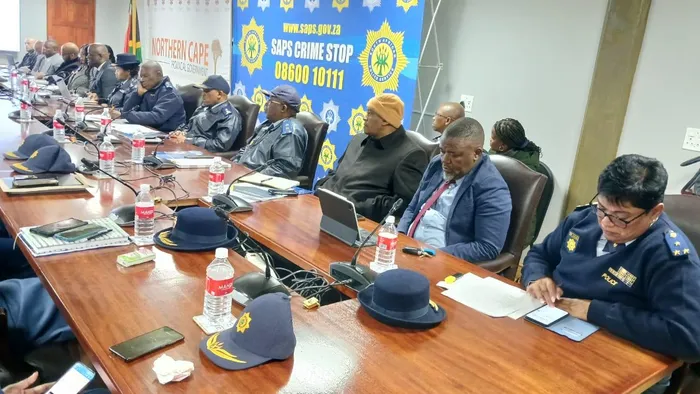SAPU alarmed over increase in violent crimes in Northern Cape

Sapu provincial secretary Sabata Ephraim Tshabedi found it worrying that knives and sharp objects were the most commonly used weapons to commit murder.
Image: SAPS / Supplied
THE South African Policing Union (Sapu) in the Northern Cape expressed concern over the sharp increase in violent crimes, particularly murders and sexual offences, in the province, while SAPS members are working under increasingly challenging conditions.
In response to the release of the crime statistics for the fourth quarter on June 10, Sapu provincial secretary Sabata Ephraim Tshabedi found it worrying that knives and sharp objects were the most commonly used weapons to commit murder.
“This trend is deeply troubling and signals a growing disregard for human life, often driven by interpersonal violence and social tensions.
“The scourge of Gender-Based Violence and Femicide (GBVF) and rape remains a significant stain on our society. These crimes continue to disproportionately affect women and children, undermining safety in our communities. SAPU calls for an intensified, multi-sectoral approach to address the root causes of GBV, including the enforcement of harsher penalties for perpetrators.”
He added that alcohol and substance abuse continued to play a major role in driving many of these violent crimes.
“We therefore urge government, faith-based organisations, civil society and all other stakeholders to strengthen substance abuse awareness, rehabilitation programmes and community-based interventions to tackle this growing challenge.”
Tshabedi believed that the increase in the incidence of kidnappings was alarming.
“These incidents, often linked to criminal syndicates and domestic disputes. An urgent intelligence-led policing is required, and community vigilance within our respective communities.”
He extended his appreciation to SAPS members, Community Policing Forums, private security, as well as all supporting stakeholders, for their continued commitment under difficult and often dangerous conditions.
“Their dedication to keeping our communities safe must be matched with better support, resources and working conditions,” Tshabedi added.
Related Topics: